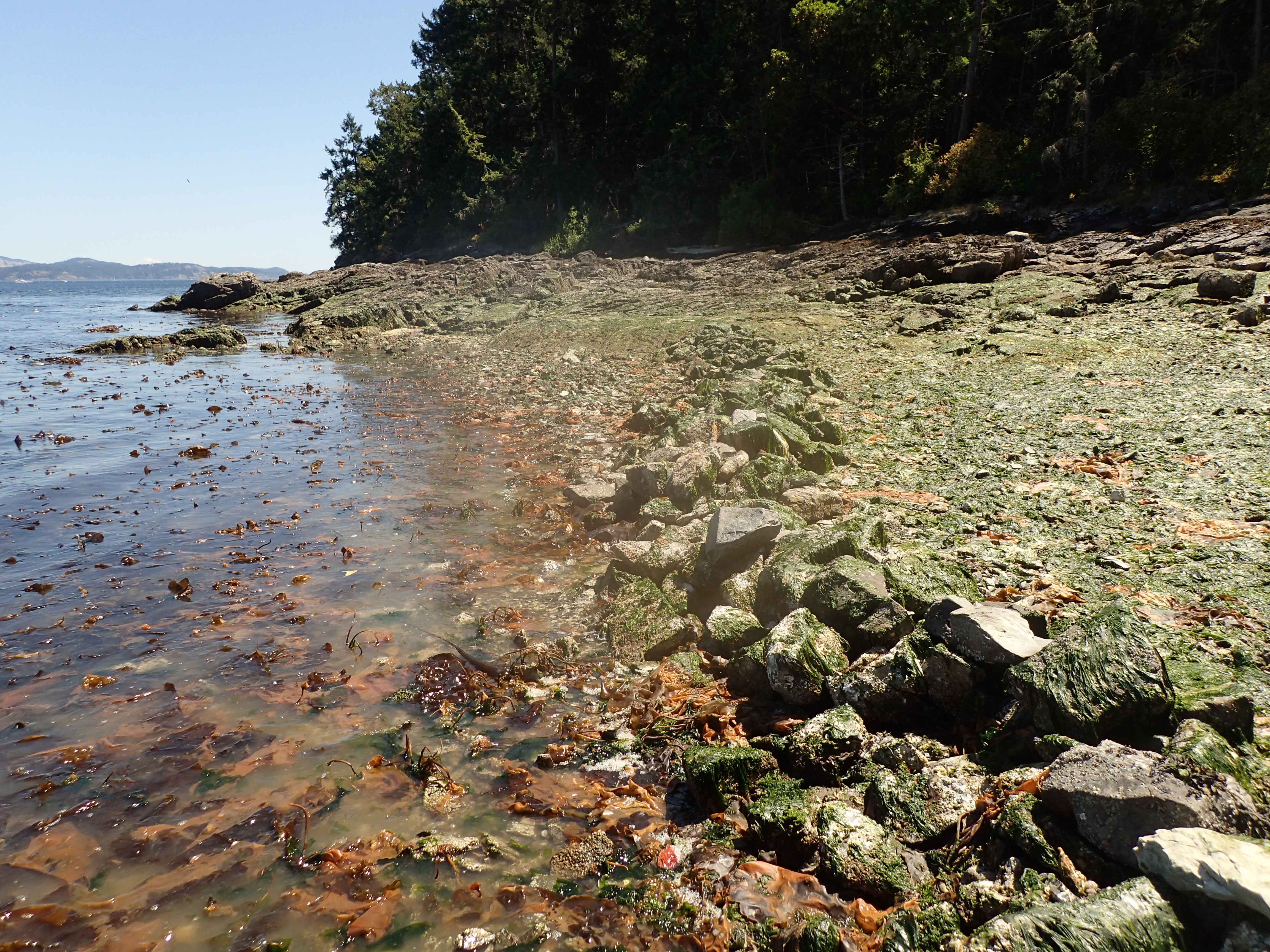Reviving the Past to Protect the Future
The Swinomish Indian Tribal Community (SITC) is working near Similk Bay to revive an ancient mariculture practice by installing the first present-day clam garden in the United States. Clam gardens are shoreline habitats modified by Northwest Coastal Indigenous people to increase the area of clam habitat to improve shellfish production. Healthy and productive shellfish beds provide important local foods and support human well-being and cultural practices. The beds may also provide ecosystem services such as locally reduced ocean acidification and improved shoreline habitat for a healthy food web. Restoring native clam populations is a priority for the Puget Sound Partnership, the National Oceanic and Atmospheric Administration, and Northwest Tribes, including the SITC. Utilizing clam gardens promotes the integration of traditional ecological knowledge in contemporary resource management, encourages local food security, supports tribal treaty rights, and provides ecological and cultural benefits to the community.
What worked:
- The design of the clam garden supports the growth of native clam species.
- Clam gardens increase the abundance of native clam populations.
- Adding shell hash to the beach increases natural settlement of young clams in the first year.
- Building a clam garden engages the community to revive traditional practices.
Benefits:
- Clam gardens directly improve habitat conditions and increase shellfish harvest areas.
- Community engagement encourages long-term sustainable harvest practices and addresses tribal health and well-being.
- Enhancing local clam populations supports tribal treaty rights by improving access and availability of tribally-important resources.
- Shell hash promotes survival of young clams and may locally reduce the impacts of ocean acidification.
Location:
- Congressional District: 2
- Legislative District: 40
- WRIA: 3
- County: Skagit
Partners:
- Swinomish Indian Tribal Community
- Washington Sea Grant
- NOAA Northwest Fisheries Science Center
- Hul’qumin’um Working Group
- WSANEC Working Group
- Parks Canada
- Western Washington University
- University of Victoria
- Simon Fraser University
- Northwest Indian College
- University of Washington
- Our World-Underwater Scholarship Society
Project Funding:
- Washington Sea Grant
- EPA
- Bureau of Indian Affairs

